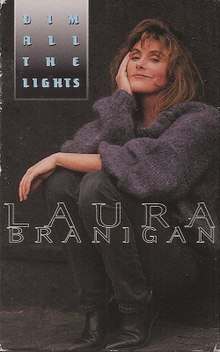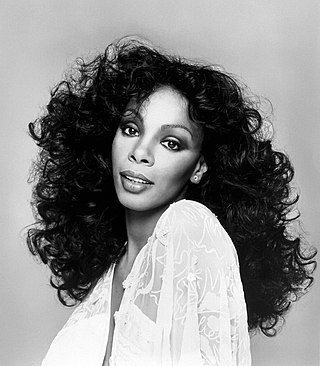
Donna Adrian Gaines, known professionally as Donna Summer, was an American singer and songwriter. She gained prominence during the disco era of the 1970s and became known as the "Queen of Disco", while her music gained a global following.

"MacArthur Park" is a song written by American singer-songwriter Jimmy Webb that was recorded first by Irish actor and singer Richard Harris in 1968. Harris's version peaked at number two on the Billboard Hot 100 chart and number four on the UK Singles Chart. "MacArthur Park" was subsequently covered by numerous artists, including a 1970 Grammy-winning version by country singer Waylon Jennings and a number one Billboard Hot 100 disco version by Donna Summer in 1978. Webb won the 1969 Grammy Award for Best Arrangement Accompanying Vocalist(s) for the Richard Harris version.
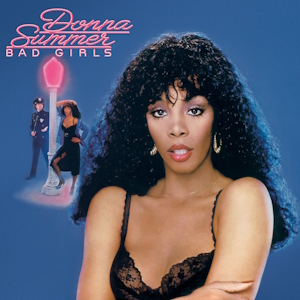
Bad Girls is the seventh studio album by American singer-songwriter Donna Summer, released on April 25, 1979, by Casablanca Records. Originally issued as a double album, Bad Girls became the best-selling and most critically acclaimed album of Summer's career. It was also her final studio album for Casablanca Records. In 2003, Universal Music re-issued Bad Girls as a digitally remastered and expanded deluxe edition.

"I Feel Love" is a song by the American singer Donna Summer. Produced and co-written by Giorgio Moroder and Pete Bellotte, it was recorded for Summer's fifth studio album, I Remember Yesterday (1977). The album concept was to have each track evoke a different musical decade; for "I Feel Love", the team aimed to create a futuristic mood, employing a Moog synthesizer.

The Best of Branigan is a greatest hits compilation by singer Laura Branigan released in the United States in 1995, and re-released in 2007. The anthology also marked the end of Branigan's relationship with Atlantic Records. Of the thirteen tracks, eight had charted, including her major hit singles "Gloria", "Solitaire", "Self Control", "Power of Love", and "How Am I Supposed to Live Without You".

"Last Dance" is a song by American singer Donna Summer from the soundtrack album to the 1978 film Thank God It's Friday. It was written by Paul Jabara, co-produced by Summer's regular collaborator Giorgio Moroder and Pete Bellotte, and mixed by Grammy Award-winning producer Stephen Short, whose backing vocals are featured in the song.
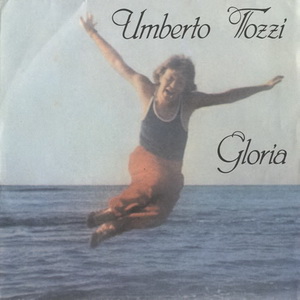
"Gloria" is a 1979 love song written and composed in Italian by Umberto Tozzi and Giancarlo Bigazzi, and first translated to English by Jonathan King. A 1982 cover version by American singer Laura Branigan, with different English lyrics, peaked at number two on the US Billboard Hot 100 and has been certified platinum by the Recording Industry Association of America (RIAA).

"Hot Stuff" is a song by Pete Bellotte, Harold Faltermeyer, and Keith Forsey released as the lead single by American singer Donna Summer on her seventh studio album Bad Girls, produced by English producer Pete Bellotte and Italian producer Giorgio Moroder in 1979 through Casablanca Records. Up to that point, Summer had mainly been associated with disco songs but this song also showed a significant rock direction, including a guitar solo by ex-Doobie Brother and Steely Dan guitarist Jeff "Skunk" Baxter. It is the second of four songs by Summer to reach number one on the Billboard Hot 100.

"This Time I Know It's for Real" is a song by American singer-songwriter Donna Summer, released on February 13, 1989, as the first single from her 14th studio album, Another Place and Time (1989), by Atlantic Records and Warner Bros. Records. Like the rest of the album, the song was written and produced by the British Stock Aitken Waterman (SAW) team, though Summer also had a hand in writing this song.

"Bad Girls" is a song by American singer and songwriter Donna Summer from her 1979 seventh studio album of the same name. Casablanca Records released it as the album's second single on June 23, 1979. The song was produced by Summer's regular collaborators Giorgio Moroder and Pete Bellotte, and co-written by Summer and the members of Brooklyn Dreams, Bruce Sudano, Joe "Bean" Esposito and Edward "Eddie" Hokenson.

"No More Tears (Enough Is Enough)" is a 1979 song recorded by American singers Barbra Streisand and Donna Summer. It was written by Paul Jabara and Bruce Roberts, and produced by Giorgio Moroder and Gary Klein. The song was recorded for Streisand's Wet album and also as a new track for Summer's compilation double album On the Radio: Greatest Hits Volumes I & II. The full-length version was found on Streisand's album, while a longer 11-minute edit (the 12" version) was featured on Summer's album. The longer 12" version features additional production by frequent collaborator Harold Faltermeyer, and incorporates a harder rock edge.

"On the Radio" is a song by American singer-songwriter Donna Summer, produced by Italian musician Giorgio Moroder, and released in late 1979 on the Casablanca record label. It was written for the soundtrack to the film Foxes and included on Summer's first international compilation album On the Radio: Greatest Hits Volumes I & II.
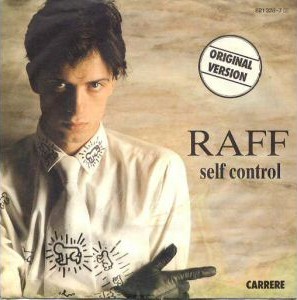
"Self Control" is a song by Italian singer Raf, released in 1984. It was written by Giancarlo Bigazzi, Steve Piccolo and Raf, and arranged by Celso Valli. The track topped the charts in Italy and Switzerland, and started the explosion and dominance of Italo disco-style recordings in continental European charts during the 1980s.

On the Radio: Greatest Hits Volumes I & II is the first greatest hits album by American singer Donna Summer, released on October 15, 1979.
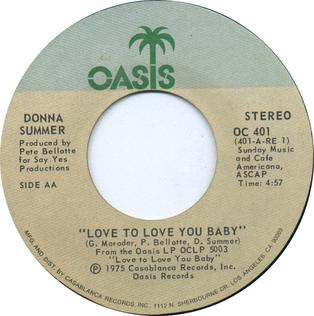
"Love to Love You Baby" is a song by American singer Donna Summer from her second studio album (1975). Produced by Pete Bellotte, and written by Italian musician Giorgio Moroder, Summer, and Bellotte, the song was first released as a single in the Netherlands in June 1975 as "Love to Love You" and then released worldwide in November 1975 as "Love to Love You Baby". It became one of the first disco hits to be released in an extended form.

"Try Me, I Know We Can Make It" is a song by American singer Donna Summer from her third studio album A Love Trilogy (1976).
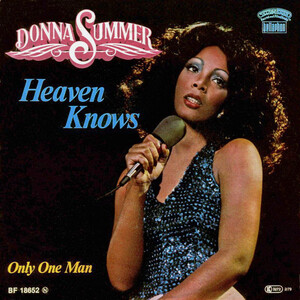
"Heaven Knows" is a song by American singer Donna Summer, with guest vocals from Brooklyn Dreams. It is a single from Summer's Live and More album. The song became a number 4 hit for Summer in the US the week of March 17, 1979, and held there for three weeks. It features the group Brooklyn Dreams with vocals by Joe "Bean" Esposito.

"The Wanderer" is a song by American singer Donna Summer, released as the lead single from her 1980 eighth album of the same name, which was the first for her new label Geffen Records after recording her previous albums with Casablanca Records. Despite the label change, Summer continued to work with Giorgio Moroder and Pete Bellotte, who had produced the majority of her hits in the late 1970s. However, it marks a change in style for The Queen of Disco, incorporating new wave styled synth riffs and a shuffling beat.
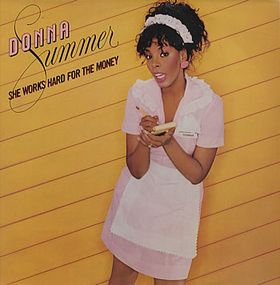
"She Works Hard for the Money" is a song by American singer Donna Summer and the title track from her eleventh studio album of the same name (1983). The song was written by Michael Omartian and Summer, and produced by the former. It was released as the lead single on May 10, 1983 from the album by Mercury Records. It became a hit for Summer, reaching number one for a three-week stay atop the Billboard R&B singles chart, number three on the Billboard Hot 100, and number three on the Billboard Dance Club Play chart. The single ended up as Billboard's 15th-best performing song of 1983. In addition, Summer earned a nomination for Best Female Pop Vocal Performance at the 1984 Grammy Awards, where she performed the song live as the opening for the ceremony. It became one of the biggest hits of her career and her biggest hit of the decade.
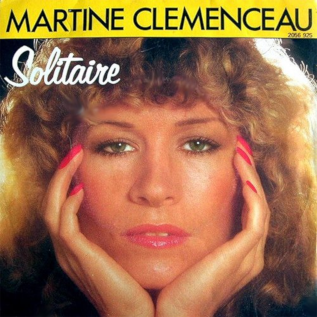
"Solitaire" is a 1981 song sung and written by Martine Clémenceau. The English version was later released in March 1983 as the lead single of American singer Laura Branigan's second studio album, Branigan 2 (1983). It was lyricized in English by Diane Warren and produced by Jack White and Robbie Buchanan.

